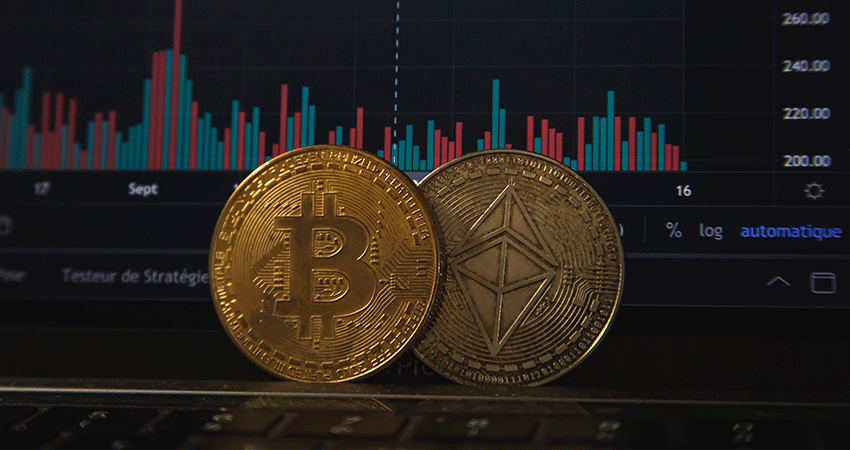Cryptocurrency payments are coming; here’s what you need to know (Photo credit: Pierre Borthiry – Peiobty on Unsplash)
Merchant acceptance of cryptocurrency payments is at a very nascent stage. Only large retailers and companies (Whole Foods, Home Depot, GameStop, Newegg, Starbucks, AT&T, Microsoft, etc.) are starting to accept Bitcoin and other cryptocurrencies at physical stores, according to Apparel Resources. Amazon is also looking at currently available cryptocurrencies while considering developing its own.
These big players and others are embracing cryptocurrency in hopes of gaining a competitive advantage, according to a new report from Deloitte in collaboration with PayPal.
A significant percentage of consumers are starting to look for merchants that offer a cryptocurrency payment option. Research from PYMNTS shows that among tech-driven consumers, more than 1 in 3 (35%) prefer merchants that take cryptocurrency, with 26% saying they would go so far as to switch to where crypto is accepted. Nearly one in four (23%) similarly say they prefer merchants that accept cryptocurrency payments.
Cryptocurrencies can certainly be volatile. The price of a Bitcoin ranged between $16,625 and $23,522 from the beginning of this year to the end of February, according to Yahoo! Finance. The 52-week range between mid-March 2022 and 2023 was from $15,599 to $48,086. Other cryptocurrencies tended to have the same volatility. So certainly, accepting cryptocurrency isn’t for everyone.
Yet for merchants who sell to the tech industry (especially if they deal in blockchain-related technology) and other crypto-friendly markets, accepting these payments can be a great way to build a loyal customer base, as the Deloitte research indicates. This is particularly true for merchants with tech-savvy customers who want the latest digital payment options, which is the draw for Apple, Microsoft and others.
However, it’s also important for merchants to understand the pitfalls as well. Let’s start with the basics.
Accepting Cryptocurrency Payments
You can begin accepting cryptocurrency payments via a digital wallet for the type of currency you choose. Payments can be directly negotiated from wallet to wallet, with no middlemen at all. While Bitcoin and Ethereum are among the best known, there are also other cryptocurrencies like Dogecoin that you may want to avoid due to a variety of issues.
But simply using a digital wallet lacks the efficiency of an integrated payment system. Setting up the cryptocurrency transfer between merchant and customer shouldn’t be a complex interaction separate from other types of payments. Instead, cryptocurrency payments at checkout should be similar to using a debit or credit card. It requires full integration with CRM, shopping cart software, loyalty programs and any other marketing technology, as well as systems for validating and processing orders.
Major payments providers including Visa, Mastercard, PayPal and some large banks, have already started facilitating acceptance of cryptocurrencies. Merchants also have the option of using third-party cryptocurrency gateways, a payment processing service that accepts digital currencies then immediately converts them to fiat currency that can be received.
Such gateways provide a couple of advantages for merchants:
- They make it easy for customers to seamlessly pay with cryptocurrency at checkout
- They eliminate any concerns that a sudden downward swing in the cryptocurrency market will cause the payment to lose its value.
The gateway charges the customer for an amount of cryptocurrency equal to fair market value at the moment of purchase, then immediately provides the merchant with that amount in the appropriate currency. The gateway, not the merchant, assumes all of the complications and risk of the cryptocurrency on the open market. The gateway passes the cost of the transaction along to the merchant and may also charge an additional service fee.
Challenges of Accepting Cryptocurrency Payments
Though accepting cryptocurrencies may provide some advantages for some merchants, there are challenges as well:
- Volatility: As mentioned earlier, cryptocurrencies have had some wide price swings. While the trend so far in 2023 has been up, there have been sharp declines on some days and weeks. This has shaken the confidence of some cryptocurrency investors. However, when cryptocurrency declines, people want to spend it. Stablecoins, which tie the cryptocurrency’s value to a specific asset, offer a less volatile option than Bitcoin, Ethereum, etc.
- “Gas” fees: The price of processing cryptocurrency transactions has risen. Many cryptocurrencies require merchants to cover the costs of validating blockchain transactions. These so-called “gas” fees can be volatile, just like the cryptocurrencies themselves.
- Disputes: Unlike payment card or check transactions, there is no mechanism for disputes arising from fraud, error or non-delivery of services.
Conclusion
It will be some time before cryptocurrency achieves widespread adoption as a payment method for everyday purchases. Along with the issues mentioned above, there are regulatory concerns and the need for a robust and auditable underlying infrastructure. It also requires development of user-friendly consumer technology to make it as easy as using a debit or credit card or other common payment method.
However, cryptocurrency is already being touted as the payment method that will drive commerce in the metaverse, where the blockchain will make virtual assets both portable and protected.
For now, accepting cryptocurrency may be a cutting-edge choice for merchants in the mainstream. But a forward-thinking attitude about the future of payments can put you in a strong position to take advantage of the next paradigm shift in ecommerce.
Suresh Dakshina is Cofounder and Strategist with Chargeback Gurus

